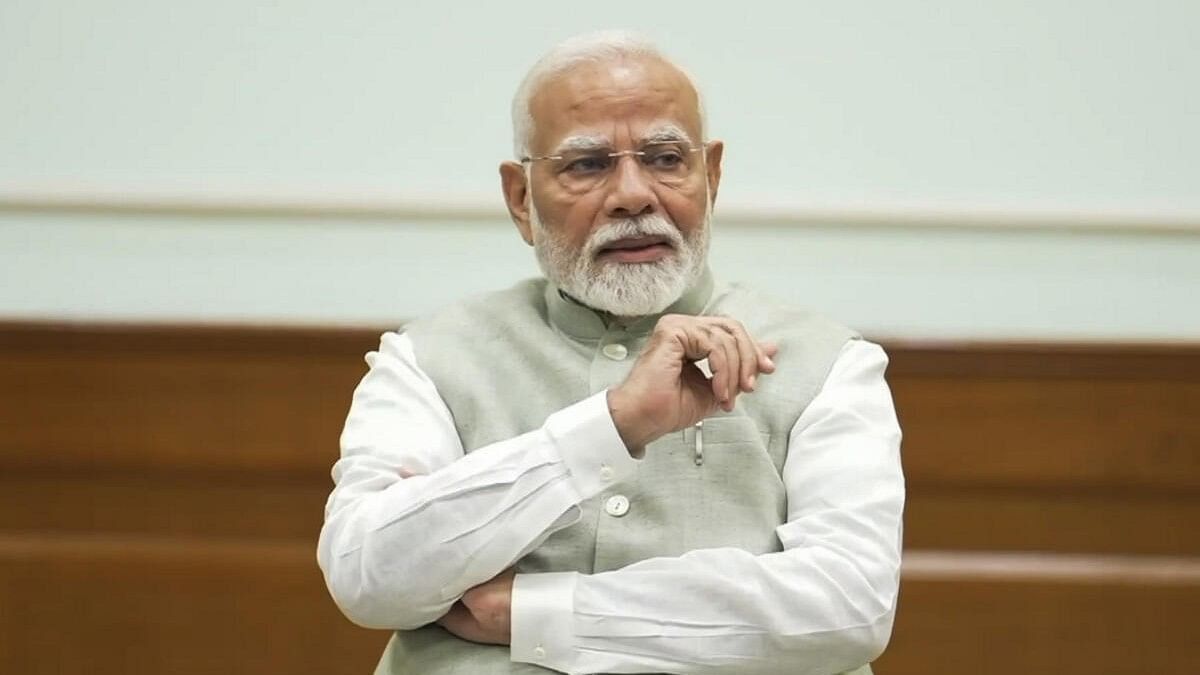
PM Narendra Modi.
Credit: PTI Photo
New Delhi: The Narendra Modi government has refused to provide details of a revised draft of the Broadcasting Services Regulation Bill, though it admitted that “certain parts” of the Bill were “updated” and “shared with certain participants” but not all, RTI responses have shown.
The Ministry of Information and Broadcasting has also not provided information about the status of the two versions of the Bill, including the one which was kept out of public domain.
The revised draft attracted criticism for proposals that treat online content creators as OTT or digital broadcasters if they dealt with current affairs among others. In August this year, the Ministry reopened consultations on its first Bill giving time till October 15 for sending comments and said it would publish a “fresh draft” after detailed consultations.
Transparency activist Anjali Bhardwaj has sought information regarding --the contentious updated draft that was shared with select stakeholders, a copy of the text of the undertaking that the stakeholders were required to sign promising that they will not share it, copy of the text of the Bill which was shared with stakeholders, and names of the stakeholders with whom the Bill was shared.
“The secrecy in the deliberation and consultative process is alarming given the far-reaching consequences of the Bill. The selective sharing of a version of the Bill raises serious questions about the consultative process,” Bhardwaj said.
The draft Bill with explanatory notes was first placed in public domain on November 10, 2023, seeking comments from the public within a month. The RTI response said a series of consultations were held after receiving comments and based on these deliberations, “certain parts of the Bill were updated and shared with certain participants for comments”.
However, the Ministry refused to provide further information, including the copy of updated draft and the text of undertaking stakeholders promising not to divulge details of updated draft citing Section 8(1)(d) and 8(1)(e) of the RTI Act.
“The Public Information Officer (PIO) has blandly invoked the exemption clause 8(1)(d) without demonstrating how the disclosure would ‘harm the competitive position of a third party’ and which is the third party whose interests would be harmed," Bhardwaj said.
She also said that the PIO has “failed to demonstrate” how the decision authorising the sharing of the Bill with only certain stakeholders, the text of the Bill or the names of stakeholders fall within the ambit of information held in a fiduciary capacity under Section 8(1)(e).
Referring to her second RTI seeking information on the progress, Bharwaj said the Ministry has “not provided any specific response” to the queries on whether the 2023 or 2024 versions of the Bill have been withdrawn.
“No specific exemption clause has been cited to deny the information sought. As a result, there is no clarity on the status of the Broadcasting Bill. This violates peoples’ right to information and erodes public trust in the law-making process. The failure to furnish requisite information will be challenged in the appeal process under the RTI Act,” she added.
The improvised draft, which ran into opposition, was learnt to have contained provisions that could identify online content creators, including independent journalists on YouTube and Instagram and newsletter writers, as OTT broadcasters or digital news broadcasters. This provision had attracted criticism from several quarters.
This would have brought them under the ambit of the ministry’s Content and Advertisement Code. It also proposed to make it mandatory for online content creators to appoint a grievance redressal officer and a content evaluation committee once they crossed a certain number of subscribers.
